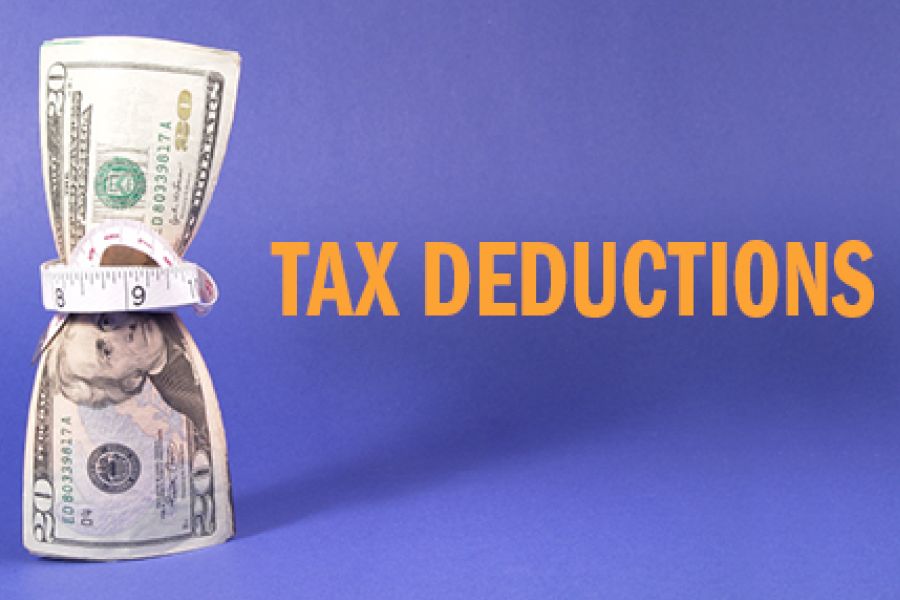Incentive stock options (ISOs) are a popular form of compensation for executives and other employees of corporations. They allow you to buy company stock in the future at a fixed price equal to or greater than the stock’s fair market value on the ISO grant date. If the stock appreciates, you can buy shares at a price below what they’re then trading for. But careful tax planning is required because of the complex rules that apply. Tax advantages abound Although ISOs must comply with many rules, they receive tax-favored treatment. You owe no tax when ISOs are granted. You also owe no regular income tax when you exercise ISOs. There could be alternative minimum tax (AMT) consequences, but the AMT is less of a risk now because...

Shakespeare’s words don’t apply just to Julius Caesar; they also apply to calendar-year partnerships, S corporations and limited liability companies (LLCs) treated as partnerships or S corporations for tax purposes. Why? The Ides of March, more commonly known as March 15, is the federal income tax filing deadline for these “pass-through” entities. Not-so-ancient history Until the 2016 tax year, the filing deadline for partnerships was the same as that for individual taxpayers: April 15 (or shortly thereafter if April 15 fell on a weekend or holiday). One of the primary reasons for moving up the partnership filing deadline was to make it easier for owners to file their personal returns by the April filing deadline. After all, partnership (and S corporation) income passes through to the owners....
Bankruptcy (or liquidation) can be a valid business tool when used properly. Unfortunately, it can also enable less-than-honest business owners to profit at the expense of their creditors. Such is often the case with “phoenix” companies. Rising from the ashes Phoenix companies earn their name because they rise from the ashes of failed companies, trading on the goodwill of the original businesses. Here’s how a phoenix company scheme might work: A company’s owner buys goods on credit, purposely drives the business into the ground and then buys its assets back from liquidators at knockdown prices. The owner then returns to the same line of business. Some operators repeat the process multiple times — as often as they can get away with it. These shady companies usually are undercapitalized...
Donating to charity is a key estate planning strategy for many people. It reduces the size of your taxable estate and it can help you leave a lasting legacy with organizations you care about. The benefit of making such gifts during life rather than at death is that you may be eligible for an income tax deduction. Qualifying for a charitable deduction is, in some respects, a matter of form over substance. The IRS could disallow a deduction, even if it’s otherwise legitimate, if you fail to follow the substantiation requirements to the letter. If you’ve made charitable donations in 2018, it’s wise to review the substantiation rules as you file your 2018 tax return. Here’s a quick summary of the rules: Cash gifts under $250: Use a...
Concert, sporting and other event tickets can go for astronomical prices — when they’re even available. Hoping to find reasonably priced tickets (or to find tickets at all), many consumers turn to the online resale market. But while most resale transactions are legitimate, some involve ticket scammers. Buy from one of these sellers and you may end up with stolen or counterfeit tickets. Playing defense Ticket scams generally succeed because they exploit a common desire to bag a bargain or gain access to something that isn’t easily obtainable. But you can avoid getting tricked. Here’s how: Buy direct. Whenever possible, buy first-release or secondary market tickets from the event’s official ticketing agent. The ticket may cost more, but buying from a reputable agent comes with peace of mind. Look...
As posted on Peak Prosperity.com and the Chris Martenson's Peak Prosperity YouTube Channel In his 3/11/19 Weekly News Update, Chris Martenson unpacks Federal Reserve Chairman Jerome Powell's appearance on 60 Minutes, particularly the statement that the country is experiencing "widespread prosperity". Chris Martenson, is a former American biochemical scientist and Vice President of Science Applications International Corporation. Currently he is an author and trend forecaster interested in macro trends regarding the economy, energy composition and the environment at his site, www.peakprosperity.com....
While the Tax Cuts and Jobs Act (TCJA) reduces most income tax rates and expands some tax breaks, it limits or eliminates several itemized deductions that have been valuable to many individual taxpayers. Here are five deductions you may see shrink or disappear when you file your 2018 income tax return: 1. State and local tax deduction. For 2018 through 2025, your total itemized deduction for all state and local taxes combined — including property tax — is limited to $10,000 ($5,000 if you’re married and filing separately). You still must choose between deducting income and sales tax; you can’t deduct both, even if your total state and local tax deduction wouldn’t exceed $10,000. 2. Mortgage interest deduction. You generally can claim an itemized deduction for interest...
In the restaurant industry, where long hours and thin profit margins are the norm, owners and managers often lack the time and resources to focus on fraud. Unfortunately, restaurants can provide crooked employees, customers and vendors with plenty of opportunities to steal. So you need to be able to recognize fraud threats — and nip them in the bud before they lead to heavy financial losses. Opportunity on the house Many restaurants have high transaction volumes but lack the technology linking point-of-sale, inventory and accounting systems. This leaves gaps for fraudsters to exploit. Employees could, for example, provide food and drinks to friends without entering the sales — or ring up only a portion of friends’ bills. They might issue voids or refunds when there was no...
If you run your business from your home or perform certain functions at home that are related to your business, you might be able to claim a home office deduction against your business income on your 2018 income tax return. There are now two methods for claiming this deduction: the actual expenses method and the simplified method. Basics of the deduction In general, you’ll qualify for a home office deduction if part of your home is used “regularly and exclusively” as your principal place of business. If your home isn’t your principal place of business, you may still be able to deduct home office expenses if 1) you physically meet with patients, clients or customers on your premises, or 2) you use a storage area in your home...
- 1
- 2
- 3
- 4
- 5
- 6
- 7
- 8
- 9
- 10
- 11
- 12
- 13
- 14
- 15
- 16
- 17
- 18
- 19
- 20
- 21
- 22
- 23
- 24
- 25
- 26
- 27
- 28
- 29
- 30
- 31
- 32
- 33
- 34
- 35
- 36
- 37
- 38
- 39
- 40
- 41
- 42
- 43
- 44
- 45
- 46
- 47
- 48
- 49
- 50
- 51
- 52
- 53
- 54
- 55
- 56
- 57
- 58
- 59
- 60
- 61
- 62
- 63
- 64
- 65
- 66
- 67
- 68
- 69
- 70
- 71
- 72
- 73
- 74
- 75
- 76
- 77
- 78
- 79
- 80
- 81
- 82
- 83
- 84
- 85
- 86
- 87
- 88
- 89
- 90
- 91
- 92
- 93
- 94
- 95
- 96
- 97
- 98
- 99
- 100
- 101
- 102
- 103
- 104
- 105
- 106
- 107
- 108
- 109
- 110
- 111
- 112
- 113
- 114
- 115
- 116
- 117
- 118
- 119
- 120
- 121
- 122
- 123
- 124
- 125
- 126
- 127
- 128
- 129
- 130
- 131
- 132
- 133
- 134
- 135
- 136











